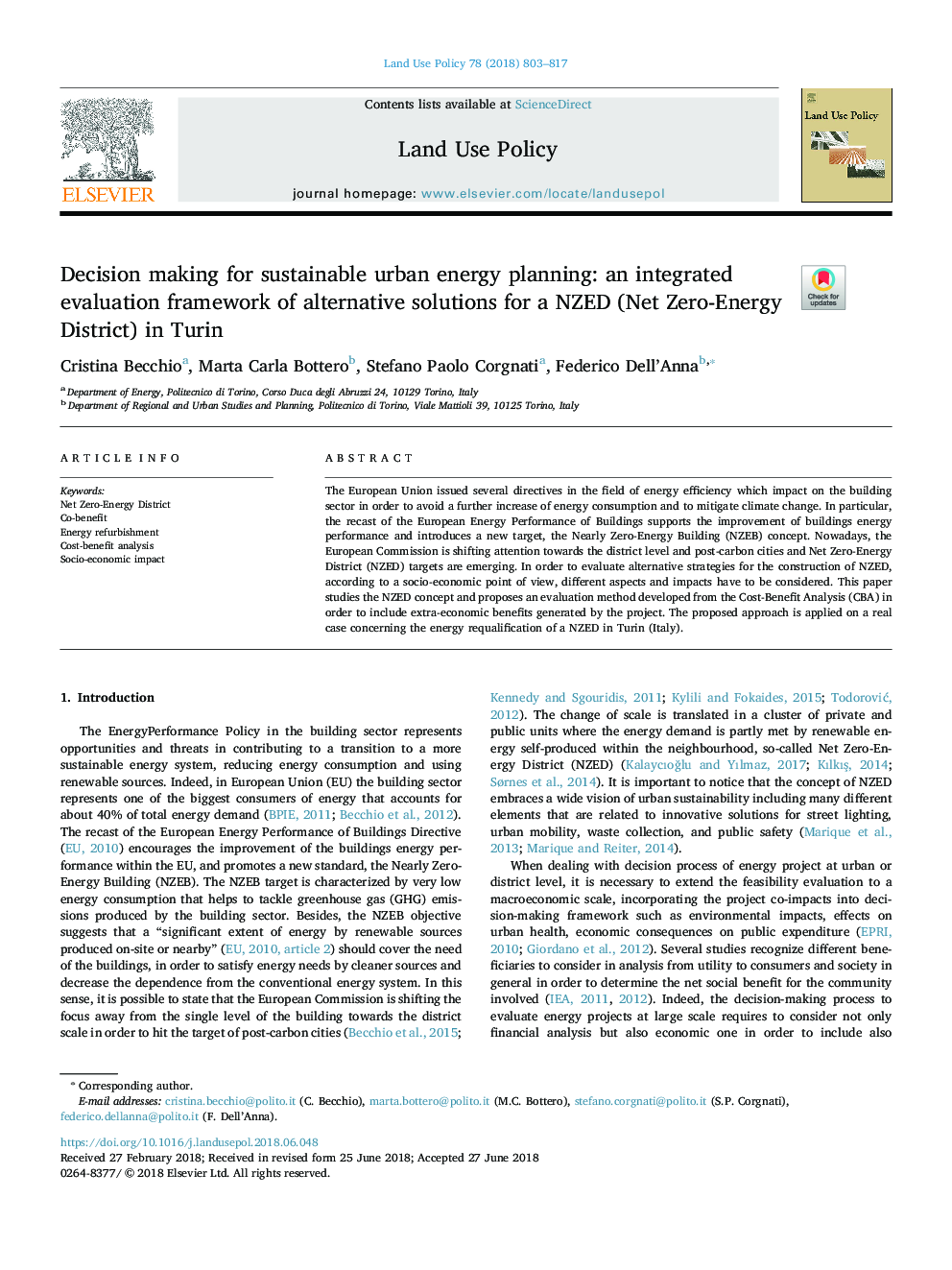| Article ID | Journal | Published Year | Pages | File Type |
|---|---|---|---|---|
| 11000118 | Land Use Policy | 2018 | 15 Pages |
Abstract
The European Union issued several directives in the field of energy efficiency which impact on the building sector in order to avoid a further increase of energy consumption and to mitigate climate change. In particular, the recast of the European Energy Performance of Buildings supports the improvement of buildings energy performance and introduces a new target, the Nearly Zero-Energy Building (NZEB) concept. Nowadays, the European Commission is shifting attention towards the district level and post-carbon cities and Net Zero-Energy District (NZED) targets are emerging. In order to evaluate alternative strategies for the construction of NZED, according to a socio-economic point of view, different aspects and impacts have to be considered. This paper studies the NZED concept and proposes an evaluation method developed from the Cost-Benefit Analysis (CBA) in order to include extra-economic benefits generated by the project. The proposed approach is applied on a real case concerning the energy requalification of a NZED in Turin (Italy).
Related Topics
Life Sciences
Agricultural and Biological Sciences
Forestry
Authors
Cristina Becchio, Marta Carla Bottero, Stefano Paolo Corgnati, Federico Dell'Anna,
